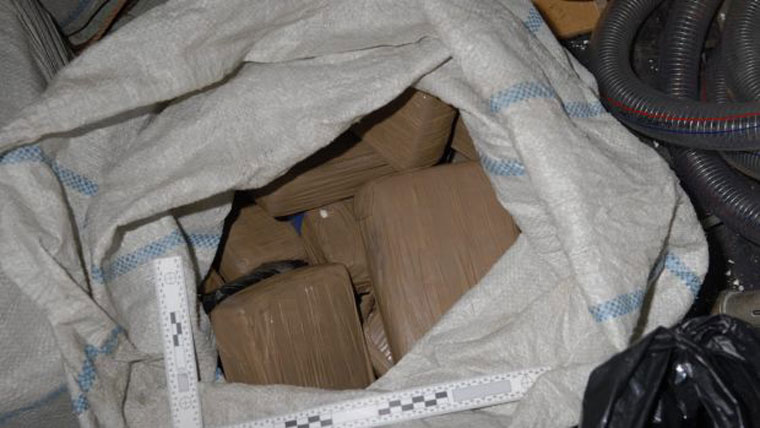Barry Zheng Chongde, a Singaporean man and Yishun resident, was charged in an Australian court in December 2016 for his alleged involvement in a drug smuggling syndicate, according to The Straits Times reporting off Melbourne newspaper The Age.
He was part of a group that had tried to move more than A$60 million (S$64.6 million) worth of cocaine into Australia. It is one of the largest drug busts in Australian history ever.
The Singaporean was arrested together with nine Chinese nationals on Dec. 12, as they were crew on board a smuggling boat.
About 180kg of cocaine of South American origin were found on board the Kaiyo Maru No. 8, a former Japanese whaling vessel. This was after the authorities conducted their raid in international waters about 1,300km off the coast of Tasmania.
The syndicate had been monitored by the authorities for about a year before the raid.
Wildly disorganised criminal syndicate
The best part of this story? The Australian press have mocked those arrested for being disorganised and terrible alleged criminals.
The plan conceived was supposedly simple enough: Get an ex-Japanese whaling boat, with a mostly Chinese crew, to sail with South American cocaine to be dropped off at hundreds of kilometres off the coast of Australia on a smaller boat, which will then head back to shore with a A$60 million payday.
However, things didn't even work out from the start.
The Age reported:
In fact, by the time the investigation had finished, it was difficult for police to understand how such a bumbling gang allegedly masterminded the planned importation of such a significant amount of cocaine – one of the largest hauls ever linked to Victoria.
Investigations showed the cocaine scheme was only discovered by the authorities in late November.
And this was followed by a series of mishaps that befell the syndicate who were supposed to meet the whaling vessel out at sea.
The syndicate had planned to sail a smaller boat to meet the Kaiyo Maru, just outside Australian waters, in the first week of December.
But the smaller boat meant for trafficking the drugs back to shore never even made it: On the drive on the way to the port, it fell from a trailer.
The syndicate then allegedly bought a replacement boat in cash from a local fisherman as replacement.
On Dec. 6, the syndicate allegedly tried again to pick up the cocaine using their new boat but got shipwrecked when it travelled too close to the lighthouse instead of away from it.
They abandoned the boat, which became the talk of the coastal town the next day.
The syndicate then gave up.
All this while, the crew of nine Chinese men and a Singaporean man on board the Kaiyo Maru floating out at sea, zigzagging about, had to endure horrific conditions on their dilapidated ship.
The smaller boat they were waiting for never came, eventually turning their drug trafficking attempt into a rescue mission by the authorities.
On Dec. 8, as the Kaiyo Maru was being tracked by authorities, they moved down south, towards New Zealand to avoid straying into Australian waters and risk arrest.
On Dec. 12, almost a week out at sea, police raided the Kaiyo Maru upon getting clearance. They were also prepared at that point to launch a rescue mission.
The crew had by then sailed hundreds of kilometres south-east from the supposed original meeting point where the syndicate failed to show up because of their alleged incompetence.
Facing life imprisonment
Five weeks later, on Jan. 18, the alleged syndicate members were arrested by Australian authorities in various states.
Police raided several places in Melbourne and Queensland and arrested six Australians, seizing about A$93,000 in cash and drug-manufacturing equipment.
The authorities also have reason to believe the syndicate might not have made it out successfully given the treacherous sea conditions.
Australian media have since christened the syndicate's way of allegedly trying to use a smaller boat to import drugs from a larger boat as the "mothership" method.
This involves a ship loitering off the coast before drugs are unloaded onto a smaller boat that carries the goods to shore.
The crew and syndicate members have each been charged with attempting to import a commercial quantity of a border controlled drug.
They face a maximum sentence of life imprisonment.
ST said Zheng is listed as the director of a Singapore firm that deals in computer hardware and accessories.
Shin Min Daily News reported on Sunday that a male relative at Zheng's Yishun flat they visited said Zheng was a sailor.
This article helps you do a good deed this holiday season:
Top photo via Australian Federal Police
If you like what you read, follow us on Facebook and Twitter to get the latest updates.
If you like what you read, follow us on Facebook, Instagram, Twitter and Telegram to get the latest updates.
